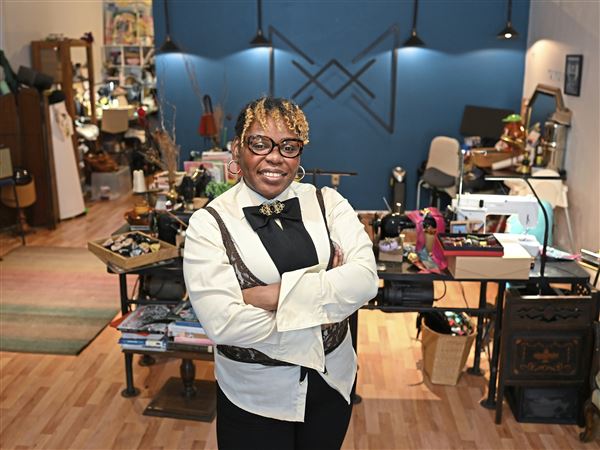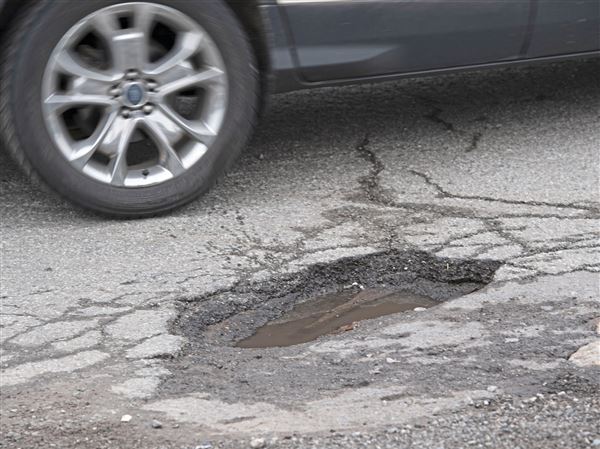The Center for Sustainable Shale Development, an almost 1-year-old environmental compliance organization that unites four major energy companies with environmental nonprofits and foundations, has a new director and has begun accepting applications from Marcellus Shale operators.
But it's not entirely clear the industry will embrace the organization's independent push to set standards beyond those established by government regulators.
The center, launched in March 2013, is beginning its promised certification program where applicants agree to undergo a third-party audit to prove they comply with 15 standards. The standards include limiting emissions of volatile organic compounds from wastewater impoundments, eliminating methane venting into the atmosphere and monitoring water quality around wells.
Audits are expected to last between three and five months and cost between $30,000 and $100,000.
The center's new director, Susan LeGros, is hoping the first batch of applications from the organization's founding members -- Shell, Chevron, Consol and EQT -- will inspire other operators to join the process.
"I was very impressed with and subscribe totally to the approach that center has articulated -- to try to bring the disparate parties together and identify what can we agree on," Ms. LeGros said.
An environmental lawyer whose most recent job was at Philadelphia-based law firm Stevens & Lee, Ms. LeGros said she educated herself on Marcellus Shale "and I came to the conclusion a while ago that like so many things, it's really a question of how it's done and what actions can be taken to minimize risks -- what risks are acceptable and what risks are not."
She starts her new job at the center's Downtown office on Feb. 3.
For now, the center's certification process seems to have little appeal for non-member companies, who may not rush to participate.
"We see no need to do so," said Susan Oliver-Stough, a spokeswoman for Tulsa-based WPX Energy. "We are confident we are operating in an environmentally responsible manner."
Canada-based Talisman Energy looked at the center's standards when they were announced and decided it was either meeting or exceeding best practices in the field, spokeswoman April Crane said. Thus, it saw no reason to apply for certification.
Matt Pitzarella, a spokesman for Texas-based Range Resources, said the company prefers to be part of efforts "that can most effectively transition best practices into required regulation."
Stanley Berdell, president of Kittaning-based BLX Inc., a relatively minor Marcellus operator, said he would like to pursue the certification. But, with a small staff and limited resources, he's not sure how much BLX can spare to demonstrate environmental consciousness outside of regulatory compliance.
The center has contracted with Bureau Veritas, an international testing and certification agency, to conduct the audits. Auditors will visit well pads, impoundments and compressor stations, giving a company 48 hours notice. They'll also review written procedures and the tracking of waste and emissions.
Companies are certified for two years, but auditors return periodically during that period for spot checks.
"[It's] so that you can't game the system," said Andrew Place, corporate director of energy and environmental policy with EQT who has served as interim director of the center since it opened. "You can't say we studied hard for that test and then we let it slide."
Mr. Place said the final audit reports will be publicly available on the center's website, www.sustainableshale.org.
Nigel Hearne, president of Chevron Appalachia, said his company is "in the process of modifying our equipment and standard operating procedures to ensure compliance with all 15 center standards."
Some of the standards overlap with existing regulations. Others chart new territory, such as the organization's requirement that certified companies monitor water quality within a 2,500 feet radius of a wellhead for at least one year after a well is completed.
Royal Dutch Shell expects to apply for certification during the second quarter of this year and hopes others will follow suit.
"As a founding member of the center, we are proud of the achievements of this new organization and look forward to other operators in the region seeing value in this approach," said Paul Goodfellow, a vice president for Shell.
Downtown-based EQT Corp. is reviewing its procedures to see if any changes are required before pursuing certification, said David Cannon, deputy general counsel for government and environmental affairs.
First Published: January 21, 2014, 4:53 a.m.















